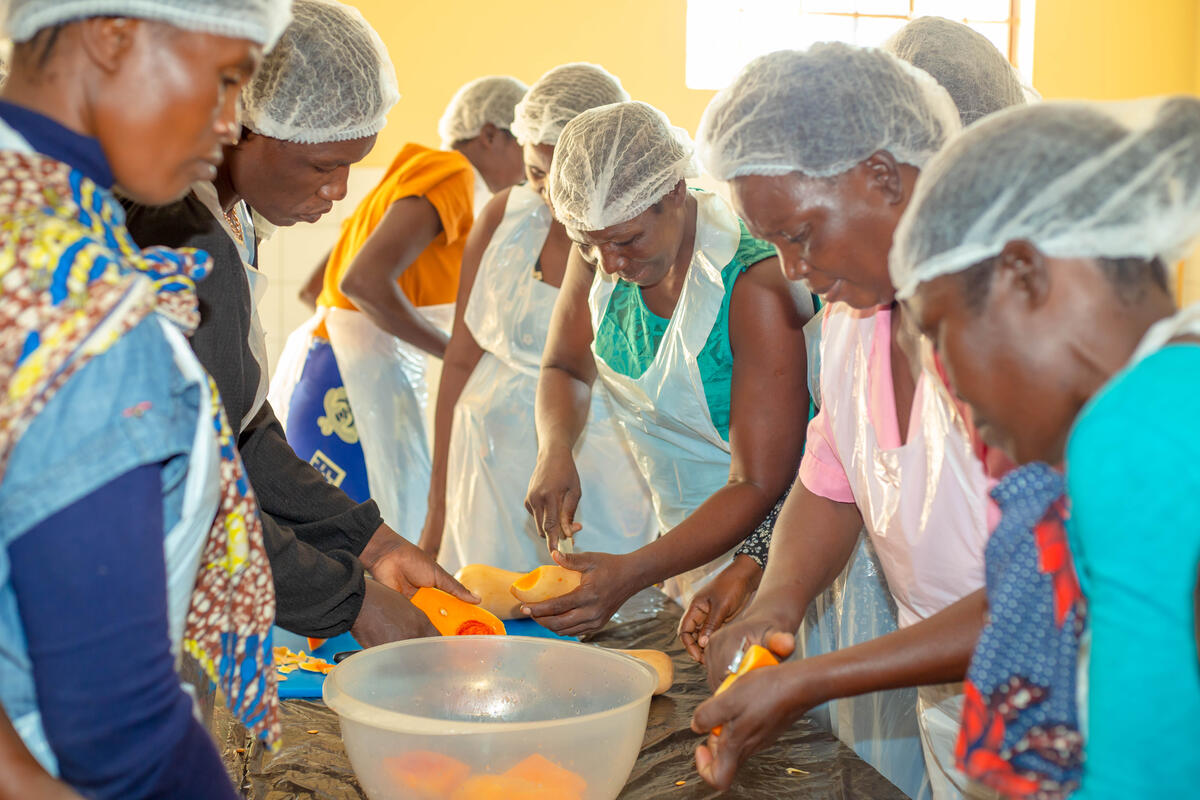
On Wednesday 1 November, the World Food Programme (WFP) Centre of Excellence against Hunger in Brazil, with the support of the Brazilian Cooperation Agency (ABC) of the Ministry of Foreign Affairs (MRE), the Brazilian Embassy in Windhoek and the National Fund for Education Development (FNDE), held the first session of the “Virtual Study Visit: Brazil” with representatives of the Namibian government and the WFP in the country.
The session aimed to present the two countries’ school feeding systems and promote exchanges through South-South Cooperation on how this public policy can help fight hunger and malnutrition among school-age children and young people. The Namibian government is committed to improving its national school feeding programme, which has been in place since the 1990s and, since 2021, has adopted the model of home-grown school feeding.
“Recently, the home-grown school feeding approach that we recommended to the government of the Republic of Namibia was tested in 29 schools in the country’s 7 regions and seems to be producing policies that are truly destined to transform and change lives,” said Ericah Shafudah, Deputy Country Director of WFP Namibia. The programme currently serves around 75% of the country’s school children.
During the presentations, representatives from the FNDE presented the general scope of the National School Feeding Programme (PNAE, in Portuguese) and highlighted its diversified service throughout Brazil. Today, the PNAE serves around 40 million students in around 150,000 schools and is one of the largest school feeding programmes in the world. “The Programme has been an international reference for some regions due to the characteristics of this public policy, an intersectoral food and nutrition security policy for local and sustainable development,” said Izolda Cela, Executive Secretary of the Ministry of Education.
For the Centre of Excellence’s Programme Officer, Vinícius Limongi, the Brazilian programme is a great reference for the world, and WFP, together with the Brazilian government, can help disseminate strategies and good practices learned over the years to various countries. “Brazil knows how to feed children every day at school with a great programme, but it also has many innovations to show and share its learning of more than a decade,” he said.
Brazil and Namibia have a growing relationship of support and co-operation. This year, for example, the Government of Brazil donated US$ 120,000 to the United Nations World Food Programme (WFP) in Namibia, with the aim of increasing access to food and alleviating malnutrition in five regions of the country. The funds will enable the establishment of sustainable mechanisms to guarantee adequate food for vulnerable populations.
Virtual Study Visit
In 2021, ABC, FNDE and the WFP Centre of Excellence jointly launched the “Virtual Study Visit: Brazil”. The tour consists of a series of videos that simulate an immersion in the Brazilian NAP, and is a central tool of the Centre’s remote support methodology.
It is complemented by opening and closing virtual workshops. Although not intended to replace the traditional on-site visit, the “Virtual Study Visit: Brazil” covers the most relevant points of the messages conveyed in a face-to-face visit to Brazil, cost-effectively supporting the global dissemination of the main elements that have contributed to the success of Brazilian policies in this area. Find out more.




